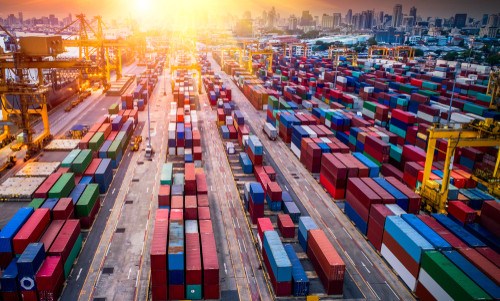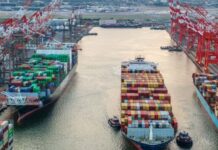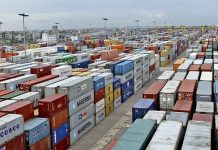
India has revived a long-contemplated plan to build a new container terminal at Tuna Tekra, about 15 miles from Kandla Port (now renamed Deendayal Port Authority – DPA), a major government-owned cargo gateway on the country’s west coast.
The landlord port, which has no dedicated container-handling infrastructure at present, saw its previous attempts to set up a container terminal on the same site fall through because of a lukewarm response from investors. The first bidding effort collapsed in 2014 when two shortlisted bidders — Adani Group and Hyundai Engineering-Coast Infratech Consoritum — did not participate in the second stage of the tender process.
Under the new development programme announced yesterday (18 July), the port authority plans to develop two mega cargo-handling terminals on a build-operate-transfer (BOT) basis, via public-private partnership investment arrangements, at an estimated cost of Rs. 5,963 crore (about US$745 million).
“To cater to the future requirement of the hinterland and further benefit the downstream industries around the Gujarat and allied states, the authority has decided to develop a container terminal and a multipurpose cargo berth at Tuna-Tekra in the Kutch District,” DPA said in a statement.
The proposed container terminal will be designed with draughts ranging from 14 to 18 metres, able to handle large-size vessels of 6,000 to 21,000-TEU capacity.
Plans for the multi-purpose terminal project call for necessary infrastructure capable of servicing ships ranging in size from 100,000 deadweight tons (dwt) to about 2100,000 dwt.
The authority will offer 30-year operating concession rights to the winning bidder, with a provision to extend it by a further 20 years.
“At Deendayal Port, we are focusing on six major strategic areas, which include cargo and productivity improvement; landlord port development; port-led industrialization; coastal shipping and ro-ro; ro-pax expansion; improvement in ease-of-doing business and cost-of-doing business and green, sustainable and safe port development,” DPA chairman S. K. Mehta said in a statement. “To further aid the handling capacity, these two mega cargo handling projects will decongest the port and reduce waiting time for handling containers and cargo.”
Mehta added: “Considering the immense opportunities available for growth, I invite the business fraternity here and the interested entrepreneurs who are keenly involved in the maritime sector, to participate in the tender for the two mega projects and join hands with DPA in the mutual interest for the overall benefit of the trade and nation at large.”
DPA handled 127.1 million metric tons of cargo in fiscal year 2021-22, up 8.11% year-over year, and officials are hoping that with the planned capacity addition, the port will be able to reach a throughput level of 200 MT by 2030.
Jenny Daniel
India correspondent
Contact email: j.daniel@container-news.com





